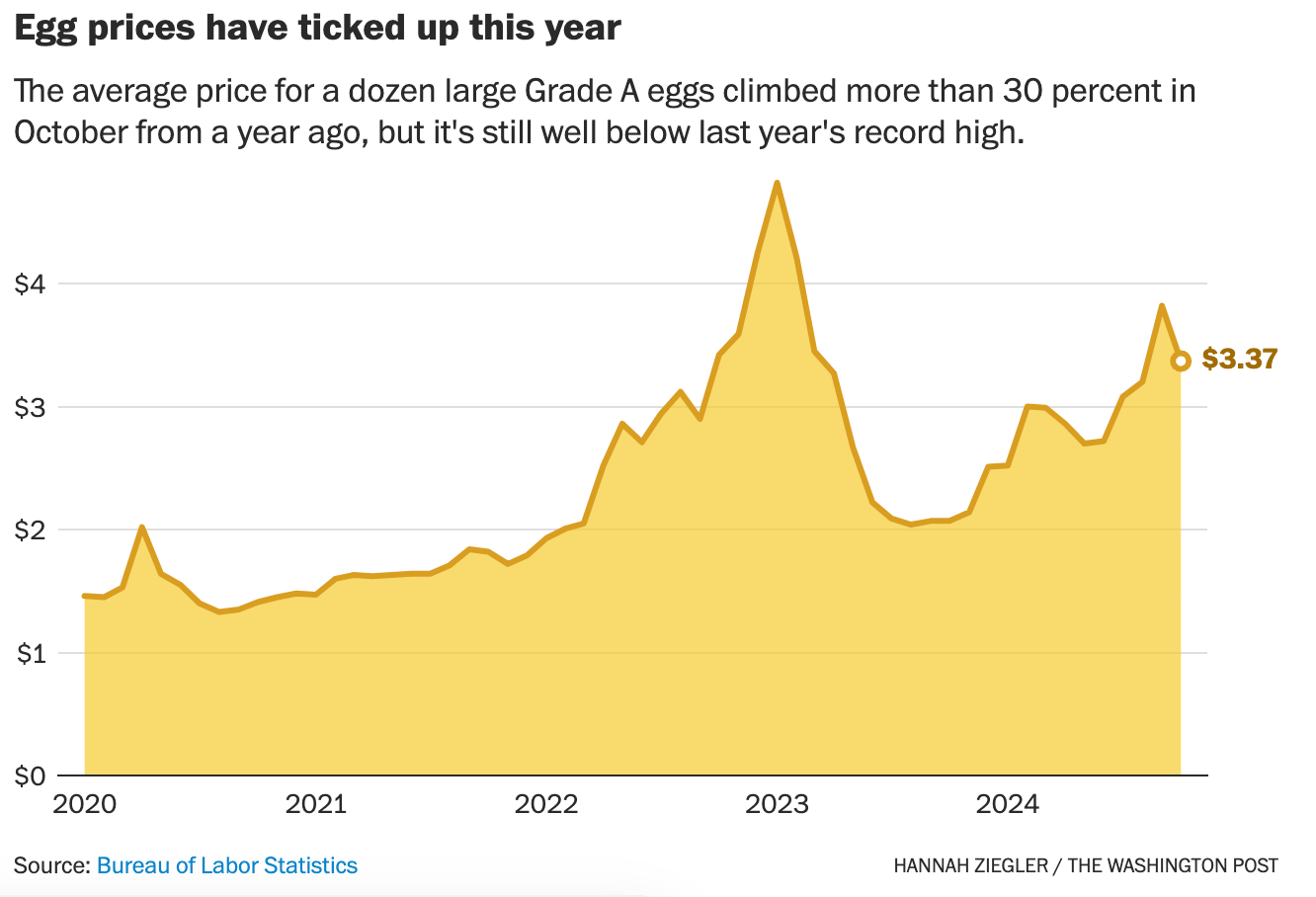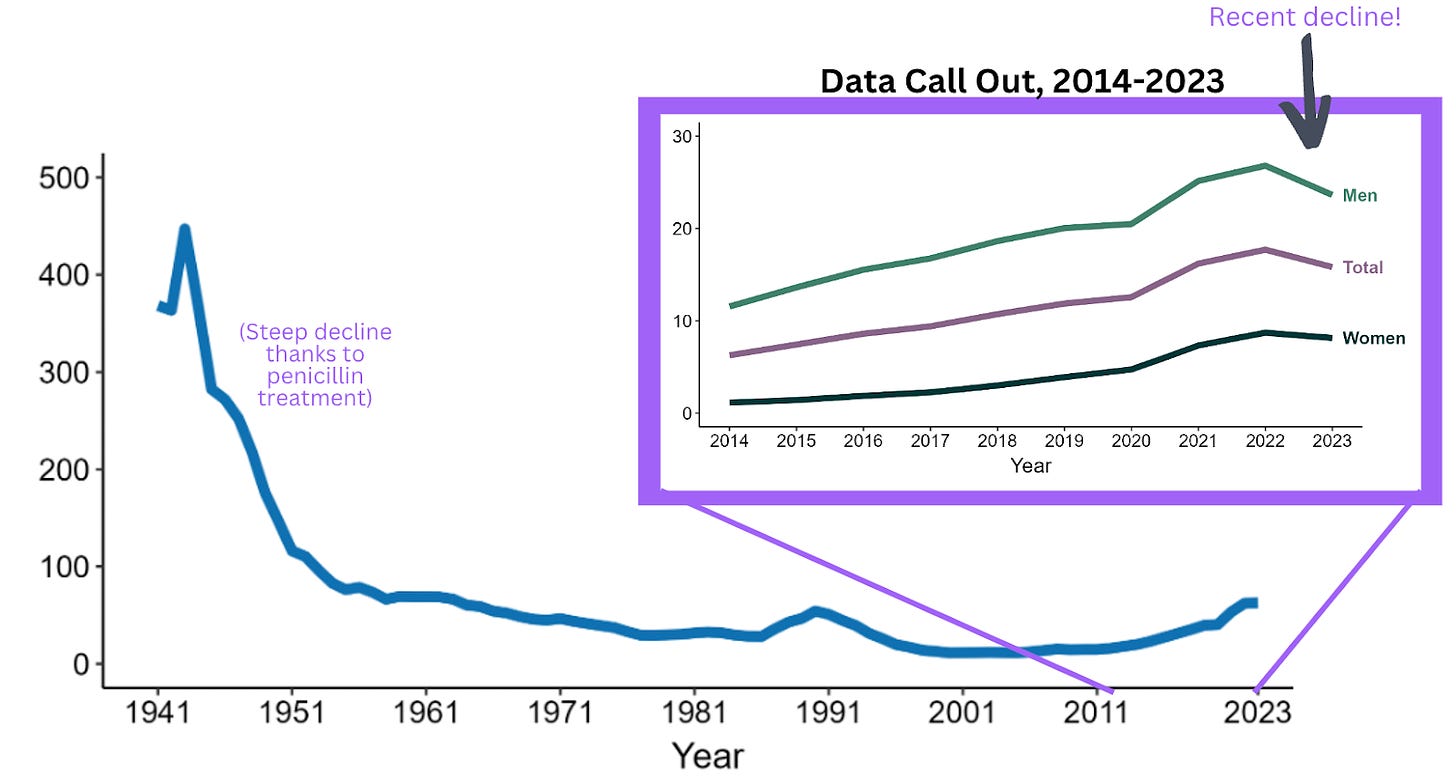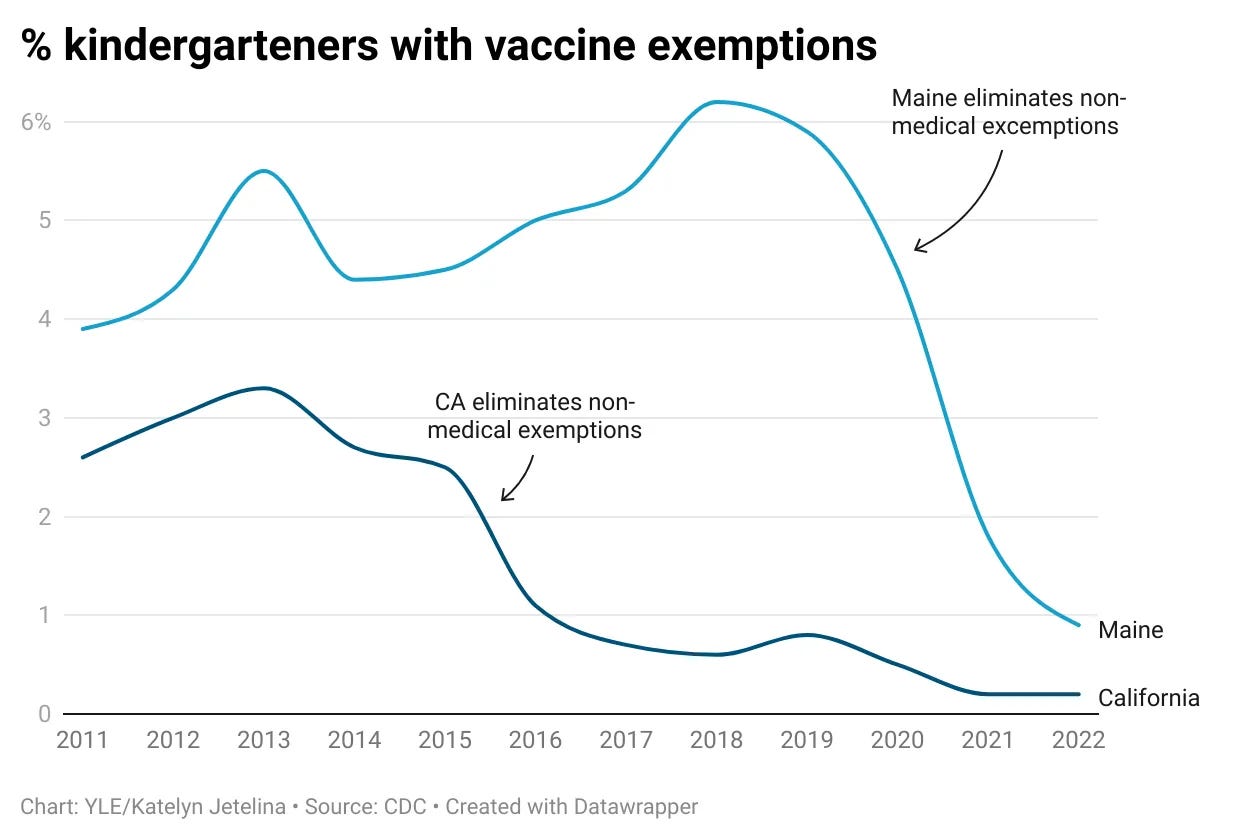The Dose (November 22)
Resources that may be helpful, eggs are expensive again, new RSV data, and STIs are declining
It’s time to get back into the groove of things. Here’s public health news you can use for the week.
Fall respiratory weather report: “Big three” remain low
Per national wastewater data, Covid-19, flu, and RSV all remain low in the U.S.
I anticipate fall respiratory season “officially” beginning next week, as it will soon cross the epidemic threshold. The holidays may hyperdrive it. I will start publishing a semi-regular State of Affairs again to bring you a deeper dive.
Resources in anticipation of the unknown
Many people are wondering what they can do to prepare for an HHS secretary with a history of ignoring reality. Regardless of what happens, the YLE audience—you—are trusted messengers (religious leaders, business executives, clinicians, public health departments, neighbors, grandparents) and will continue to have a critical role in listening and filling health information voids.
I have started curating a list of resources that may be helpful:
Top 12 questions on routine vaccines. Many people have questions about routine vaccinations: the need, safety, and rumors. YLE, in partnership with Yale School of Public Health, compiled an FAQ document of evidence-based information for you. Feel free to email, print out, distribute, doodle on, or let it guide organic conversations with others.
Communicating health in a polarized era. On Tuesday, December 10, at 10 a.m. PT/1 p.m. ET, I will host a live Q&A with Kyle McGowan, the former CDC Chief of Staff under the first Trump Administration. McGowan has helped me and many other public health programs think strategically about positioning public health in a polarized era. This event will target a public health audience, but anyone is welcome to join! Mark your calendars; more details to come.
Weekly takes on public health news. I have joined America Dissected as a co-host! We will bring you first-draft reactions to public health in the news and how politics, media, culture, tech — everything around us — interact to shape our health. Follow on Apple Podcasts, Spotify, or whenever you get your podcasts.
Eggs are getting expensive thanks to H5N1
Egg prices are up 30%, which means we are paying upwards of $4 for a dozen eggs. That is if you can find them. Why? A constellation of reasons, but there is one we can’t ignore: the avian flu (H5N1) is impacting poultry farmers, although it’s not yet as bad as last year.
Outbreaks in commercial poultry farms can devastate local food supplies, affect farmers’ and employees’ livelihoods, and raise poultry prices due to a limited and strained supply. For example, an egg factory in Iowa killed 5.3 million chickens over a single case of avian influenza in the flock.
There’s no immediate concern for the general public (risk to humans is still low), except that it’s a pain at the grocery store.
However, scientists have been learning more about H5N1 and what it may mean to humans. Here’s an attempt to catch you up:
Asymptomatic infection. Fifty-three humans have been infected with H5N1 this year, mostly from direct contact with dairy cows and poultry. Thanks to some new science, we now know we’re missing cases. The CDC discovered that some dairy workers who never reported symptoms have antibodies. In other words, H5N1 causes asymptomatic infection. This isn’t surprising, given what we know about seasonal flu, a cousin of H5N1.
A Canadian teenager is in the ICU because of an H5N1 infection. This is the country’s first known H5N1 human infection. Unfortunately, health authorities don’t know how the teen got it. They haven’t had any contact with birds, cows, or pigs (although their dog was euthanized because it got so sick; epidemiologists are looking into this). The teen’s severe reaction is likely related to age. The younger the person, the less cross-protection is offered by exposure to seasonal flu.
The virus is mutating in places that we don’t like. Scientists looked more closely at the genetics of the Canadian ICU patient’s virus and found concerning mutations that could make it better adapted to infecting humans. These changes alone do not mean that the virus is poised for efficient human-to-human spread, as many additional changes are likely needed for that to occur. But the more chances the virus gets to infect people, the more likely these changes are to occur together. In addition, CDC has reported that some mutations are associated with reduced effectiveness of antivirals. Still, it’s thought that these changes are not currently big enough to make antivirals ineffective altogether.
It will be interesting to see how a change in administration impacts preparedness for pandemics like H5N1. I will be keeping a close eye on it.
New RSV vaccine data for pregnant women: Earlier is better
There’s been a lack of real-world effectiveness data on RSV vaccination during pregnancy. This week, we got a really useful study on the optimal timing of vaccination during pregnancy:
Researchers collected data on mothers who received an RSV vaccine between 32 and 36 weeks of pregnancy and collected antibody levels in two-month-old newborns.
They found that women vaccinated closer to delivery had significantly lower antibodies in their babies.
To be clear, getting vaccinated during pregnancy at any time will help the baby. However, for maximum protection, aim to receive the vaccine at least five weeks before your due date.
How does this vaccine work again? A mom gets vaccinated, and then she makes antibodies, which takes some time. Then mom’s antibodies are passed to the neonate via the placenta. Once born, the infant has protection up to six months after birth. Pretty cool! Parents also have the option to give a monoclonal antibody to their infant. See here for more information.
Sexually transmitted infections slow down
After years of increasing, sexually transmitted infections (STIs) have turned the tide and decreased by 1.8%. The decline is seen in every region across the United States but is most pronounced in the West. Lower rates of gonorrhea and syphilis are driving the slowdown.
Why the decrease? Mainly due to public health campaigns and innovations:
Ability to test frequently and privately. FDA-authorized self-tests (or at-home tests) for syphilis, gonorrhea, and chlamydia. Awareness of infection can reduce transmission to others.
Doxy PEP. This is a medication one can take within 72 hours of sex that reduces the chances of getting an infection, recommended primarily for men who have sex with men and trans women after unprotected sex.
Public health campaigns driven by a national task force for syphilis and for PrEP to prevent HIV transmission and to test more frequently.
Reader question grab bag
After the future of vaccine policy post last week, a reader emailed: “Why don’t some places allow [vaccination] exemptions? For example, I recall Maine had a very high exemption rate before ending the exemption; is that true of the others? What happened to change the rules?”
In 2015, a Disneyland measles outbreak fueled legislation to remove non-medical exemptions for routine vaccinations in California. Maine changed its law in 2021. I don’t know why—it doesn’t seem like this was in response to an outbreak but rather a groundswell during the pandemic. It was a very close vote. Both states saw dramatic vaccine exemption declines after passing the law eliminating non-medical exemptions.
Bottom line
You’re all caught up for the week! Have a wonderful weekend. It’s time for me to pull out holiday boxes and start decorating the house.
Love, YLE
Your Local Epidemiologist (YLE) is founded and operated by Dr. Katelyn Jetelina, MPH PhD—an epidemiologist, wife, and mom of two little girls. YLE reaches more than 280,000 people in over 132 countries and has a team of 11 whose main goal is to “translate” the ever-evolving public health science so that people will be well-equipped to make evidence-based decisions. This newsletter is free to everyone, thanks to the generous support of fellow YLE community members. To support the effort, subscribe or upgrade below:









Thank you. Thank you. Thank you. As intelligence, truth and real science goes quiet, you and your team will get us through this mess. Forever grateful for what you do.
Thank you for all the helpful work you are doing to keep folks informed about these issues. I am hoping for progress on Covid vaccines that are able to target multiple strains, particularly in the form of nasal delivery without the need for someone else to administer them -- and also therapies to treat and eliminate Covid if contracted. I believe these things are moving forward in other countries (?). Could you keep us posted on their status here, and also the vulnerability of their research and testing being interfered with by RFK Jr. or someone like him (if he isn't confirmed)? Thank you!